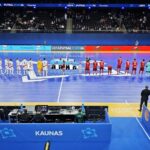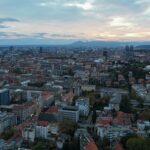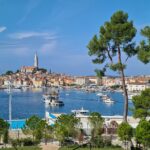Seven towns will receive substantial grants from the European Union.
Seven towns in Croatia – Zagreb, Split, Rijeka, Osijek, Zadar, Slavonski Brod and Pula – will receive a total of 345.35 million euros from European structural and investment funds for the development of urban areas, announced on Friday the Ministry of Regional Development and EU Funds.
The Ministry has recently chosen these seven towns which will implement integrated territorial investment mechanism (ITU). According to the Ministry, the indicative allocation under the ITU mechanism for the city of Zagreb is 91.9 million euros, for Split 62.8 million euros, for Rijeka 49.6 million euros, for Osijek 44.1 million euros, for Zadar 35.3 million euros, for Slavonski Brod 31.1 million euros, and for Pula 30.6 million euros.
The Ministry said that the official adoption of the decision on the selection of the ITU areas would be followed by the drafting and signing of agreements which would also include implementation plans for the ITU mechanism for each town. The final allocation will be determined in accordance with the interests of the towns for specific project goals.
Minister of Regional Development and EU Funds Tomislav Tolušić emphasized the importance of the ITU mechanism and stressed that its implementation would contribute to the decentralization and strengthening of economic development. “With these funds, the seven Croatian towns will become drivers of economic and social development of Croatia”, said the Minister in a statement.
ITU is a mechanism for the implementation of activities that have an important territorial dimension and combine resources from multiple sectors, and in Croatia it is used for sustainable urban development and the implementation of integrated activities identified within the framework of strategies for the development of urban areas.
The main objective of this mechanism is to strengthen the role of cities as drivers of economic development, and activities which will be implemented through the ITU mechanism will contribute to creating a favourable environment for entrepreneurs and to improvements in cultural heritage protection and in the system of adult education. Also, it is expected they will lead to the modernization of vocational training, improvements of public transport services, an increase in energy efficiency and employment, and improvements in fight against poverty and social exclusion.
The urban areas have been selected on the basis of a competition which the Ministry announced in March this year, and eligible applicants were the seven largest urban centres in Croatia, that is towns with more than 50,000 residents. The total indicative allocation amounts to 345.35 million euros, of which 253.35 million euros comes from the European Regional Development Fund, 50 million euros from the Cohesion Fund, and 42 million euros from the European Social Fund, concluded the Ministry of Regional Development and EU Funds.







